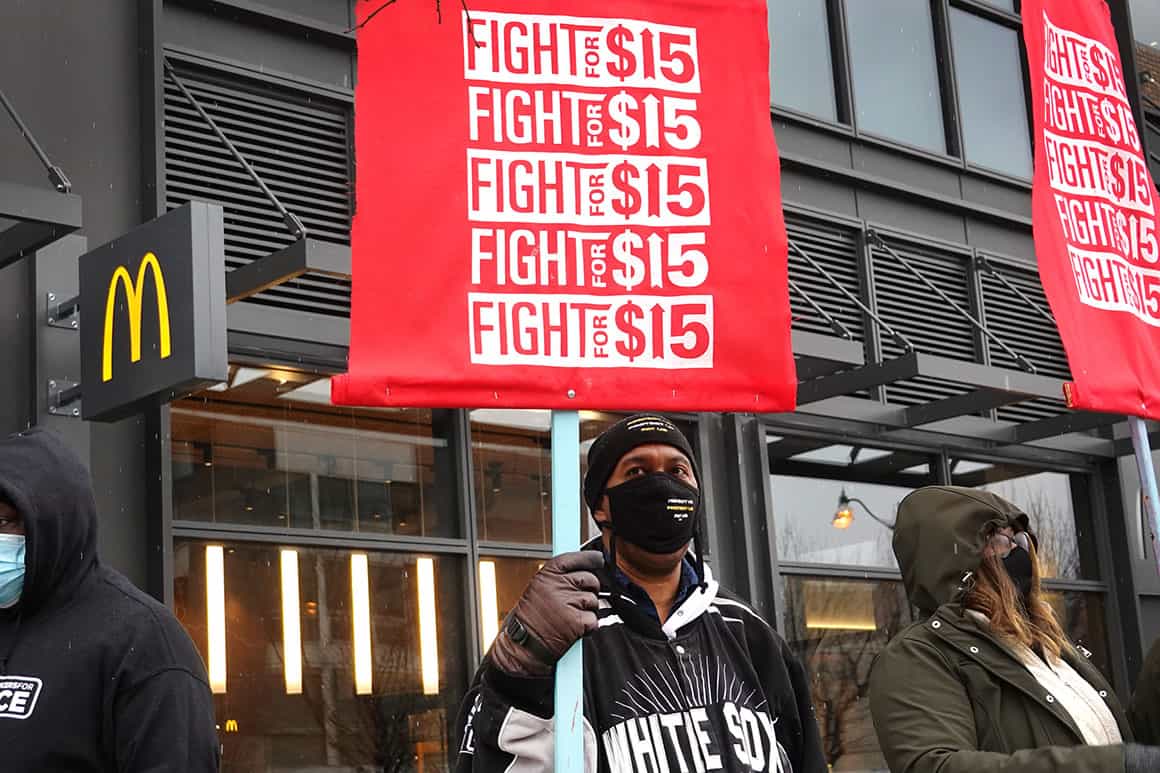William Greenlaw is a student at Harvard Law School.
Members of the United Auto Workers yesterday rejected a second offered deal by Deere & Co. This has the effect of extending the already three-week-long strike. Among the items rejected in the deal were larger wage increases, a signing bonus of $8,500, a “$35,000 retirement bonus for workers with 10 to 24 years on the job and a $50,000 bonus for workers with at least 25 years,” albeit with no new tiers of retirement benefits. The wage increase at 14 Deere facilities was larger than almost a dozen other bargaining agreements signed to by the UAW since 2018. That the union rejected such a deal is a testament to growing worker power in the waning days of the coronavirus crisis which has led to stiffer labor markets. University of Chicago historian Gabriel Winant noted, “Thirty five years ago, workers at Deere lost a lockout and took a deal that froze and reduced wages. Today they rejected an offer that starts with a 10% raise. It’s the biggest downward shift in the economic balance of power in my lifetime.”
Workers in Tucson, Arizona, obtained a victory with voters yesterday when they approved a $15 minimum wage. Known at Proposition 206, the citizen initiative passed overwhelmingly by a 2-to-1 margin. The measure implements the minimum wage over time, starting with $13 in April 2022 and reaching the $15 minimum by 2025. Supporters of the wage argued that wage increases were needed in a city where the cost of living has risen. Opposing parties, helmed by business leaders, countered that the minimum wage would hurt employers as the nation comes out of the pandemic. Part of the measure’s success, however, came from the support over 100 small businesses bucking the industry and lending their endorsements. Raising the minimum wage in the past has faced unorthodox opposition from the Republican-led state legislature in the past. Legislators are attempting to fine the City of Flagstaff, the only other remaining city that raised the minimum wage to $15, by arguing that the increased wage rate raises costs on Arizona agencies. It is dubious whether such a fine is legal. A state court judge has already halted the attempted $1.1 million fine on the City of Flagstaff.
Worker influence continues in the House of Representatives where the House Judiciary Committee advanced the Forced Arbitration Injustice Repeal Act, also known as the FAIR Act. In stark contrast to the difficult-to-surmount application of the Federal Arbitration Act, this bill “would allow people to pursue employment, consumer, antitrust, or civil rights claims in court when they are physically or financially harmed by a corporation, even if they had signed a mandatory arbitration agreement.” Supporting the bill, Committee Chairman Jerrold Nadler called forced arbitration a “living nightmare” for workers. Chairman Nadler commented further, saying, “[P]owerful corporations use forced arbitration as a tool to insulate themselves from accountability for abusing workers, consumers, and small businesses. By burying a forced arbitration clause deep in the fine print of take-it-or-leave-it contracts, companies can evade the justice system, where plaintiffs have far stronger legal protections, and hide behind a one-sided process that is rigged in their favor.” Were the bill passed into law, it would put in place at the federal level limits on forced arbitration that already exist in a handful of states, including New York.






Daily News & Commentary
Start your day with our roundup of the latest labor developments. See all
December 22
Worker-friendly legislation enacted in New York; UW Professor wins free speech case; Trucking company ordered to pay $23 million to Teamsters.
December 21
Argentine unions march against labor law reform; WNBA players vote to authorize a strike; and the NLRB prepares to clear its backlog.
December 19
Labor law professors file an amici curiae and the NLRB regains quorum.
December 18
New Jersey adopts disparate impact rules; Teamsters oppose railroad merger; court pauses more shutdown layoffs.
December 17
The TSA suspends a labor union representing 47,000 officers for a second time; the Trump administration seeks to recruit over 1,000 artificial intelligence experts to the federal workforce; and the New York Times reports on the tumultuous changes that U.S. labor relations has seen over the past year.
December 16
Second Circuit affirms dismissal of former collegiate athletes’ antitrust suit; UPS will invest $120 million in truck-unloading robots; Sharon Block argues there are reasons for optimism about labor’s future.